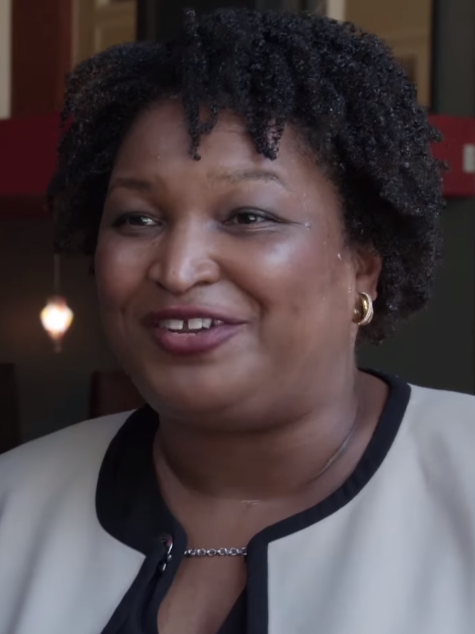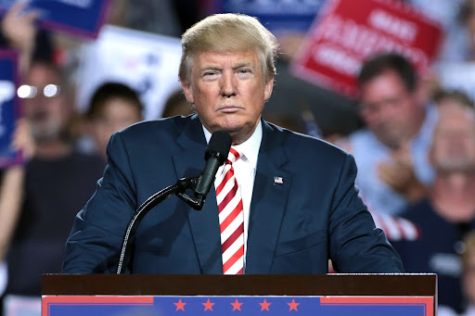Influence Of Stacey Abrams
December 8, 2020
2020 has been a year like no other, and it continues to surprise us. With a pandemic altering every aspect of our lives, it’s no surprise that this year’s election would be different.
This election shattered voting records with turnout increasing to 66% — the highest rate in more than 100 years. It also broke another long-standing obstacle when Kamala Devi Harris was elected as the first Black, first South Asian and first woman Vice President in American history.
As we pause for this historic moment it’s important to recognize the significant changes occurring in every corner of the United States. In a shocking series of events, Georgia turned blue, in favor of Joe Biden, and it’s no fluke.
Georgia shocked the entire world when it shifted blue because it had consistently voted for Republican candidates since 1964. In the 2020 election, Joe Biden became the first Democratic candidate to carry the state in nearly three decades. On November 13th, he was projected as the winner of Georgia by a slim margin of 14,000 votes. Many credit Georgia’s flip to Stacey Abrams — a former Georgia representative. Thanks to her 16 page-long playbook, Biden was urged to pay close attention to Georgia as a swing state when he began his presidential campaign.
In it, she wrote, “When analyzing next year’s political landscape and electoral opportunities, any less than full investment in Georgia would amount to strategic malpractice. Beyond our organic growth and concomitant efforts to maintain our progress, the volatile national environment, arcane Electoral College system, and limited pathways to pick up U.S. Senate seats make Georgia a must-compete and must-win state. Our work reflects this deep-seated belief in our capacity to be a tipping point in the battle for 2020. We have invested in ourselves, from voter engagement and electoral integrity work to training and funding candidates to secure a role in the 2021 redistricting process. However, I take a broad view of 2020, knowing that Georgia is part of a national charge.”
Her efforts began after she had her own close call in a political race. Back in 2018, she lost the governor race of Georgia to Republican Brian Kemp by just 55,000 votes. She alleged that there was widespread voter suppression that stopped more than a million Georgia residents from voting. The experience opened Abrams eyes to the entrenched voter suppression in Georgia which is why she created organizations like Fair Fight and the New Georgia Project to
encourage voter participation by educating them about their rights and advocating electoral reforms. Through Abram’s programs, over 800,000 new voters have been registered since 2018.While Georgia’s political shift is largely attributed to changing demographics, the work of political organizers like Abrams can not be ignored. Not only did she spend years fighting to extend voting access to marginalized communities, but she also recognized the potential for Georgia’s electorate to swing blue from the beginning. Her push in Georgia convinced the Biden administration to both take the state seriously as a battleground and focus on voters there.
Image courtesy of Wikimedia Commons.
Facts courtesy of The Washington Post.













Norma Jean Williams • Jan 6, 2021 at 9:45 AM
People, you better put your seatbelts on because without a doubt, we are going to see more of Chey Ann’s many talents in the NEAR future.